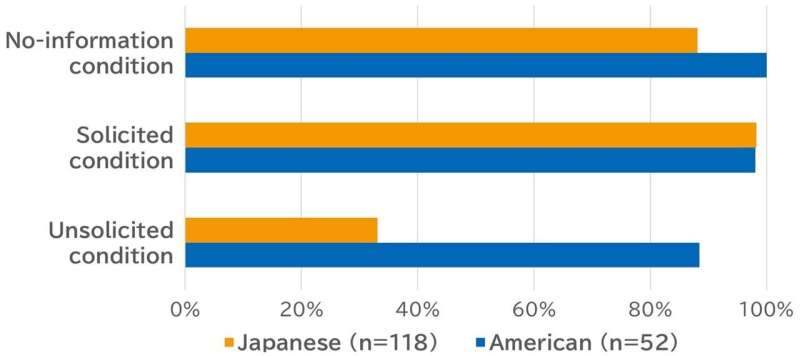Cultural differences affect how we support close friends and family

A research team led by Associate Professor Hirofumi Hashimoto, from the Graduate School of Literature and Human Sciences, Osaka Metropolitan University, analyzed the perspectives of providers of social support to examine differences in the attitudes of Japanese and American university students toward providing social support to close friends or family members.
Initially, a questionnaire based on previous research was administered that surveyed 183 Japanese university students, indicated that the Japanese students were hesitant to provide social support unless the person they were close to explicitly asked for help. To confirm the robustness of these results a second questionnaire was administered to an additional 118 Japanese and 52 American university students, using a scenario-based method to gauge their willingness to support close friends or family members in need.
The results of the second survey confirmed that even when Japanese university students were aware that someone close to them was in need, they tended to be hesitant in offering assistance unless that person had explicitly asked for their help. In contrast, U.S. university students were often willing to offer assistance when they recognized that someone close to them was in need, even when they had not been asked for help. Nevertheless, when requests for assistance were clear, both Japanese and American university students were equally likely to offer assistance.
"The results of our study indicate that the reason Japanese people feel hesitation towards helping others is not because they are unsympathetic but because these situations—where a request for help is not clear—create hesitation," said Professor Hashimoto. "Based on these findings, we need to consider ways to encourage Japanese people to provide assistance when they recognize it is needed."
The research was published in Frontiers in Psychology.
More information: Hirofumi Hashimoto et al, Solicitation matters: Cultural differences in solicited and unsolicited support provision, Frontiers in Psychology (2022). DOI: 10.3389/fpsyg.2022.953260



















